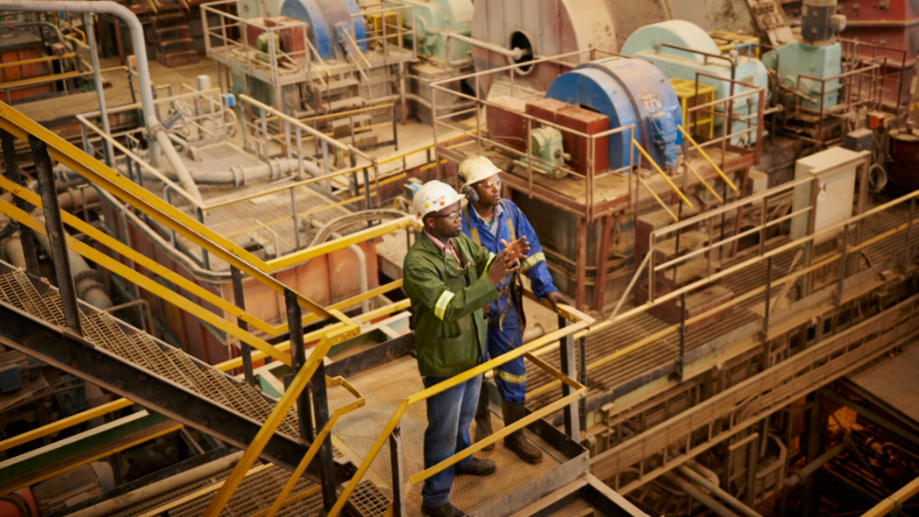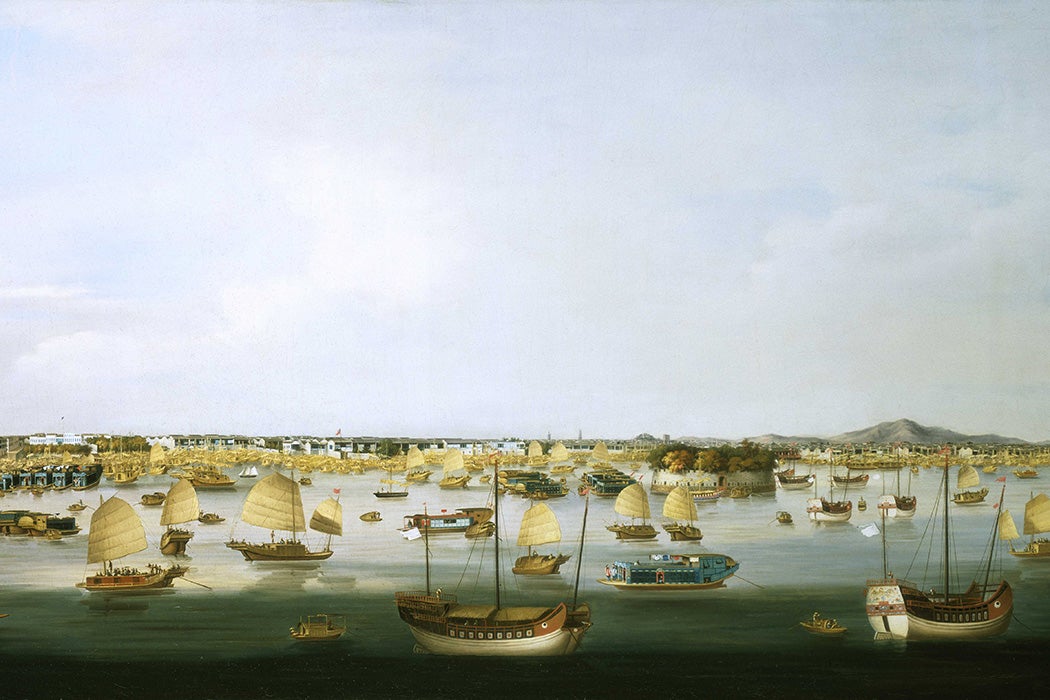Congo's Cobalt Export Ban: Implications For The Global Cobalt Market And Quota System

Table of Contents
The DRC's Dominance in Cobalt Production and its Economic Realities
The DRC accounts for over 70% of global cobalt production, a staggering figure that underscores its critical role in the international cobalt market. This economic reliance on cobalt mining is a double-edged sword. While it generates substantial revenue for the nation, it also highlights the vulnerability of the DRC's economy to fluctuations in global cobalt prices and potential disruptions to the supply chain. An export ban would have devastating social and economic consequences for the millions who depend directly or indirectly on the cobalt industry.
- Economic Dependence: The DRC's economy is heavily reliant on cobalt revenue, impacting government budgets, infrastructure development, and social programs.
- Artisanal Mining: A significant portion of cobalt production comes from artisanal miners, often working in hazardous conditions with minimal safety precautions. This poses significant risks to human rights and the environment.
- Environmental Impact: Artisanal mining practices frequently lead to deforestation, soil erosion, and water pollution, creating long-term environmental challenges.
- Human Rights Concerns: Child labor and unsafe working conditions are unfortunately prevalent in some artisanal cobalt mines, highlighting the ethical complexities of the DRC's cobalt industry.
Impact on Global Cobalt Supply Chains
A cobalt export ban from the DRC would have catastrophic effects on global supply chains, particularly impacting the burgeoning electric vehicle (EV) industry. EV battery production relies heavily on cobalt, making the DRC a crucial link in the global transition to electric mobility. The immediate consequence would be significant price surges and widespread supply shortages.
- Electric Vehicle (EV) Production: The EV industry would face a critical shortage of cobalt, potentially delaying production and increasing the cost of electric vehicles.
- Other Industries: Other sectors relying on cobalt, such as aerospace, medical device manufacturing, and rechargeable battery production for various applications, would also be severely impacted.
- Cobalt Price Volatility: The ban would cause extreme price volatility in the cobalt market, making it difficult for companies to plan and invest in the long term.
- Alternative Cobalt Sources: While alternative sources exist, they are limited in capacity and often associated with concerns regarding ethical sourcing and environmental impact. Increased reliance on these alternative sources might even exacerbate existing problems.
The Current Cobalt Quota System and its Potential Reform
While a formal, comprehensive quota system for cobalt export from the DRC might not yet fully exist in the way some other minerals are regulated, there are various informal and partially implemented regulatory mechanisms aimed at managing the export of cobalt. A hypothetical ban would force a re-evaluation of these mechanisms and highlight the need for comprehensive reform. International organizations and governments play a crucial role in regulating cobalt trade.
- Existing Regulations (if any): Examine any existing export licenses, production quotas or other regulations currently in place in the DRC's cobalt sector. Discuss their efficacy and shortcomings.
- Reform and Regulation: A ban would necessitate the implementation of stricter environmental and social standards, alongside transparent and accountable export regulations to ensure ethical sourcing.
- International Cooperation: International bodies and governments must cooperate to establish robust regulations and monitoring systems to prevent human rights abuses and environmental damage.
- Traceability and Transparency: Enhanced traceability mechanisms for cobalt throughout the supply chain are crucial to ensure responsible sourcing and prevent conflict minerals from entering the global market.
Geopolitical Implications and Diversification Strategies
A cobalt export ban from the DRC carries significant geopolitical implications. It could destabilize the region, potentially leading to conflict over resources and exacerbating existing tensions. Diversification strategies are therefore critical to mitigate these risks.
- Geopolitical Instability: The potential for conflict and instability in the DRC and surrounding regions is high due to the economic dependence on cobalt.
- Diversification of Supply Chains: Companies and governments must actively seek to diversify cobalt sourcing, reducing their reliance on a single producer and enhancing the resilience of their supply chains.
- Investment in Responsible Mining: Investing in responsible cobalt mining practices in other countries with robust regulatory frameworks can create more sustainable and ethically sourced cobalt supplies.
- Technological Innovation: Research and development of alternative battery technologies that require less or no cobalt are essential to reduce dependence on the DRC's cobalt production.
Conclusion: Navigating the Uncertainties of Congo's Potential Cobalt Export Ban
The potential for a cobalt export ban from the DRC presents a significant challenge to the global cobalt market. Its impact on supply chains, geopolitical stability, and ethical sourcing is undeniable. The key takeaways are clear: a potential ban necessitates immediate attention to sustainable and ethical cobalt sourcing, robust international cooperation, and a significant push for responsible mining practices. We must move beyond reactive measures and proactively develop alternative battery technologies to lessen our reliance on a single source. The future of Congo's cobalt export, and the global cobalt market, depends on our commitment to a sustainable cobalt supply, responsible cobalt mining, and a globally collaborative approach to securing this crucial mineral.

Featured Posts
-
 How Ind As 117 Is Reshaping The Indian Insurance Industry
May 15, 2025
How Ind As 117 Is Reshaping The Indian Insurance Industry
May 15, 2025 -
 Viet Jets Financial Troubles Deepen Court Rejects Payment Delay
May 15, 2025
Viet Jets Financial Troubles Deepen Court Rejects Payment Delay
May 15, 2025 -
 Turtsiya I Kipr Perspektivy Resheniya Voprosa O Prisutstvii Turetskikh Voysk
May 15, 2025
Turtsiya I Kipr Perspektivy Resheniya Voprosa O Prisutstvii Turetskikh Voysk
May 15, 2025 -
 Menendez Brothers Resentencing Judges Ruling Opens Door
May 15, 2025
Menendez Brothers Resentencing Judges Ruling Opens Door
May 15, 2025 -
 Breaking The Stalemate Understanding The Us China Trade Deal
May 15, 2025
Breaking The Stalemate Understanding The Us China Trade Deal
May 15, 2025
Latest Posts
-
 Tampa Bay Rays Sweep San Diego Padres A Dominant Performance
May 15, 2025
Tampa Bay Rays Sweep San Diego Padres A Dominant Performance
May 15, 2025 -
 Rays Complete Sweep Of Padres Fm 96 9 The Game Recap
May 15, 2025
Rays Complete Sweep Of Padres Fm 96 9 The Game Recap
May 15, 2025 -
 Late Game Heroics Gurriels Rbi Single Secures Padres 1 0 Win Over Braves
May 15, 2025
Late Game Heroics Gurriels Rbi Single Secures Padres 1 0 Win Over Braves
May 15, 2025 -
 Rays Sweep Padres Complete Domination In Series
May 15, 2025
Rays Sweep Padres Complete Domination In Series
May 15, 2025 -
 Gurriels Pinch Hit Wins It For Padres 1 0 Shutout Against Braves
May 15, 2025
Gurriels Pinch Hit Wins It For Padres 1 0 Shutout Against Braves
May 15, 2025
